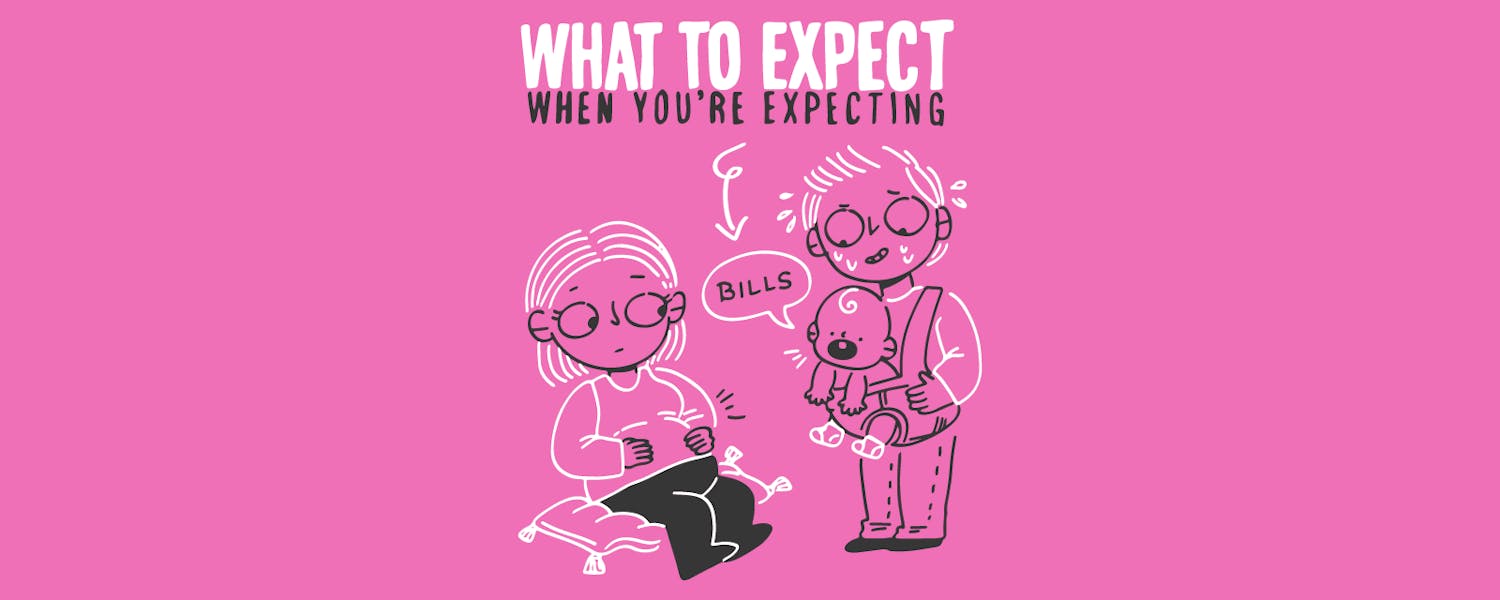7 Financial tips for new parents
Diapers, doctor visits, a crib, formula, clothes, a stroller, food, vaccinations, and college are some (of the many) things that you'll have to consider if you are about to welcome your first child.
7 tips to get you stated on the right foot and without much expense
1- Calculate it, if you don't have a savings plan and a budget that allows you to pay for the nine months of the baby's pregnancy, you'll suffer a greater imbalance when the new member of the family comes home.
2- According to MomLovesBest.com, while the child’s birth can go anywhere from around 8,000 dollars, if it’s a natural birth, and you are insured, to over 20,000, if it’s a C-section and you don’t have insurance, and getting ready for its arrival (sleeping, feeding, bath, transportation and other equipment) may cost around 3,000 dollars, the first-year expenses are calculated around 10,000 dollars, it is wise to be ready to prepare your wallet for these expenses, also to double-check your health insurance to cover for the baby’s birth costs.
Envato / ORION_production
3- Middle-income, married-couple parents of a child born in 2015 may expect to spend $233,610 ($284,570 if projected inflation costs are factored in*) for food, shelter, and other necessities to raise a child through age 17, according to the USDA.
4- Make a list of the expenses that will come when your baby is born. Let if be a monthly budget divided into 3 items: medical expenses, baby food (including milk formulas) and persona hygiene (Forbes Magazine says that cloth diapers are an excellent option for the planet and your wallet).
5- Have you given a thought about where will they go to college? It may seem very hasty to talk about college right now, but the truth is that that day will come, and you'll spend a good deal of money on college tuition.
According to College Board, published tuition fees for 2018/19 at state colleges are an average of US$10,230 for state residents, and $26,290 for everyone else. This compares to an average of $35,830 at private non-profit colleges.
6- VeryWellAFamily.com recommends accepting some clothing and other items, if they're in good conditions, from relatives or friends instead of spending on products that your baby will stop using in a short time. Invest in everything that the baby will use more than once.
Envato / Tatiana_Mara
7- Super advisable tip: You and your partner should save (separately) between 10% and 15% of your income from one year before your child is born.
How much does College cost? (approximately)
When transport and other living expenses are factored in, College Board estimates the following annual budgets for undergraduate students in 2018/19:
-
- $17,930 (community college)
- $25,890 (in-state students at a four-year public college)
- $41,950 (out-of-state students at a four-year public college)
- $52,500 (private non-profit four-year college)
The approximate cost of college tuition ranges from $17,930 dollars to $52,500 dollars.
Pexels / Pixabay
Options to pay for -from now on- the university of your children
According to the National Center for Education Statics (TICAS) students owed in average 29,650 dollars after paying for a 4-year tuition collage degree in 2016; so it may not be a bad idea to help your children avoiding this debt.
There are many savings programs that can help you pay for your kid's tuition once the time arrives, assess with your bank to know if they have some available plan for you, or look for one that fits your needs, you never know, your newborn baby may appreciate it once he becomes a doctor.





